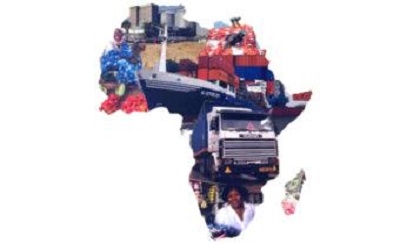
Lagos, 6 November 2018 -- The African Capacity Building Foundation is ready to help member countries develop the skills needed to develop their economies in order to benefit from the continental common market, Executive Secretary Prof. Emmanuel Nnadozie said.
The shortage of skills on the continent to drive its industrialization poses a challenge to the successful implementation of the African Continental Free Trade Area (AfCFTA), Prof. Nnadozie said in Lagos this past weekend at the Africa Trade Forum.
“Studies conducted by ACBF show that there is a serious deficit of critical technical skills and that most universities in Africa are investing more in social sciences and humanities than science disciplines,” Prof. Nnadozie said.
According to him, key areas where human capital development is needed is in science and technology, agriculture and mining and so the universities and training centers should enroll more students in these areas.
The Executive Secretary assured the member-countries that the Foundation which has been designated the African Union’s specialized agency for capacity development is their “trusted partner” in building these critical skills.
Since the economies of most African countries depend on one product for their survival, he urged them to adopt “deliberate measures” to invest in the human capacity of the producers so that they can refine them and add value to earn better returns.
African countries must also invest in roads, railway lines and waterways to facilitate free movement of people and goods across their borders. In addition, Prof. Nnadozie said, this would lead to better trade facilitation and reduction in transport costs which would help African manufacturers to integrate into global and regional value chains.
The common market, bringing together the continent with a gross domestic product estimated at $3.4 trillion, is seen as a game changer because of the expected boost to Africa’s economic development. Forty-four countries signed the AfCFTA agreement earlier this year in Kigali. It will become operational after ratification by 22 countries.
The conference was organized by the United Nations Economic Commission for Africa (UNECA), the AU and the Rockefeller Foundation.
--END--
For further information, please contact:
Tsitsi Chakonza
ABOUT the African Capacity Building Foundation (ACBF)
Having spearheaded and robustly coordinated capacity development programs worth over 700 million US dollars across 45 countries and 8 regional economic communities (RECs) in Africa since 1991, ACBF has gathered the requisite experience that makes it the go-to institution for expert knowledge and human resources to advise and support African countries, regional economic communities and institutions on decisive steps to take to develop the practical skills urgently required for the continent’s economic transformation.
Evidence from our cutting-edge work (constituting hundreds of knowledge publications) and the work of several partners show that Africa's development efforts are being hobbled by severe capacity deficits often in the form of shortage of critical skills, deficits in leadership, inhibiting mindsets and weak institutions. The continent’s practical skills shortage is acute in key areas such as Science, Technology, Engineering and Mathematics (STEM) and Agriculture.
At ACBF, we will continue using our unmatched track record in managing financial facilities for development, our vast knowledge gathering experience thanks to the exceptional skills mix of our core staff as well as our strong strategic partnerships and networks to help countries and institutions identify their capacity needs, advise them on how to plug these capacity weaknesses and on where to find the knowledge and resources to develop the requisite capacity resources, effectively use them and retain them to achieve their short and long-term development objectives.
ACBF’s vision is an Africa capable of achieving its own development.
Support this crucial work
Leverage your own efforts geared towards Africa’s transformation, or
Partner with us by writing to:
[email protected] (to support us with resources for Africa’s Capacity Development)





